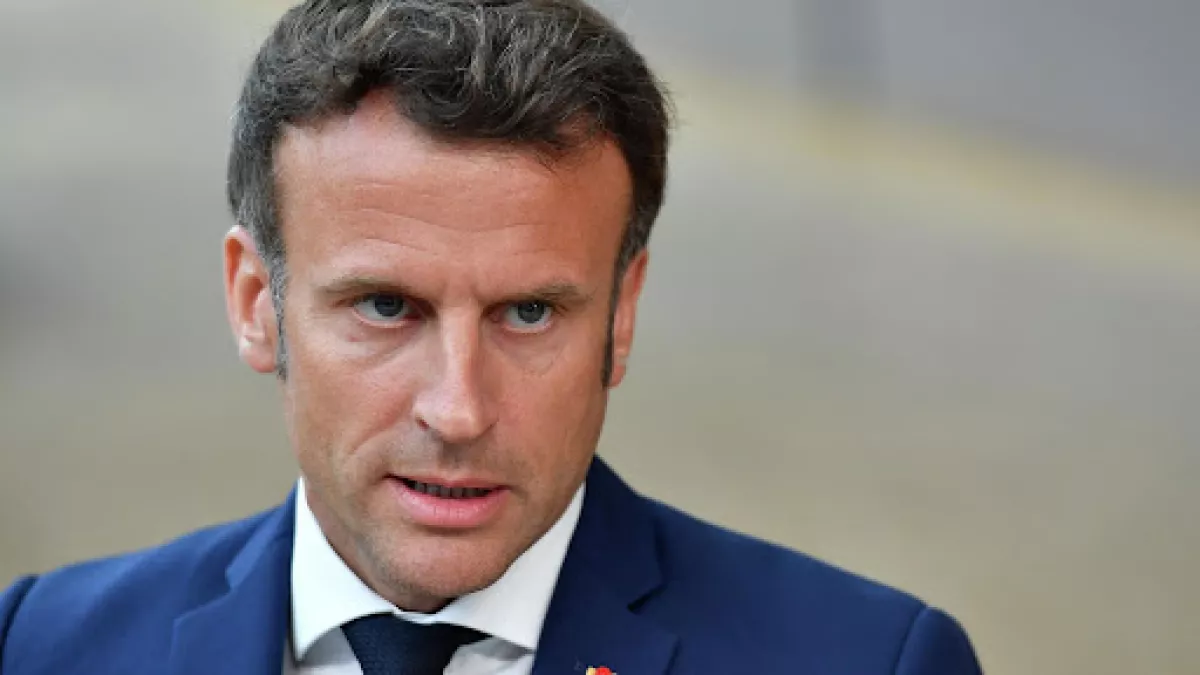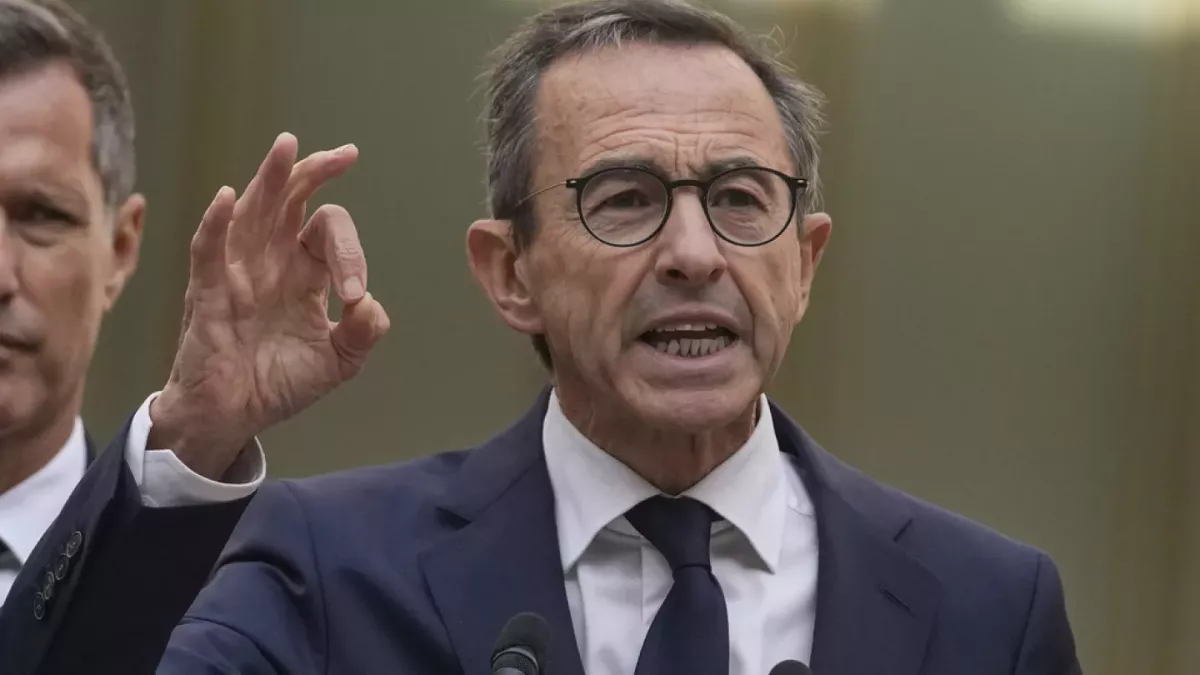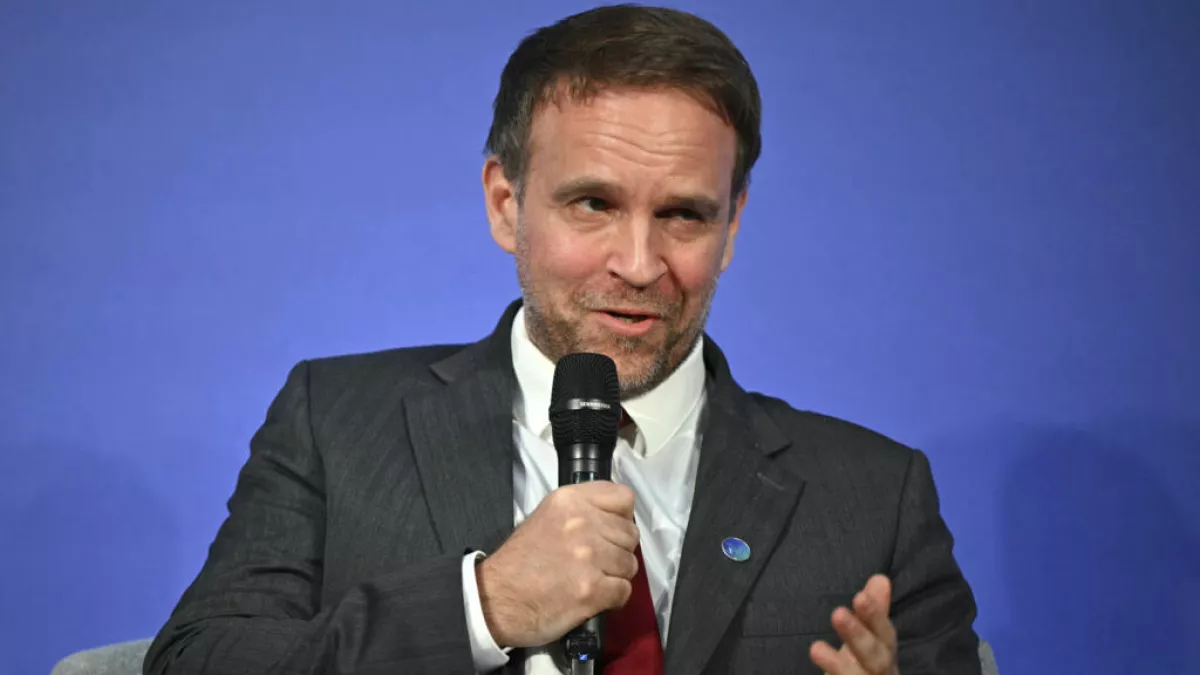Macron’s legacy: French brace for austerity to the point of suffocation France tightens belts harder than ever
French Prime Minister François Bayrou, on the eve of the government’s summer recess, presented his plan for “financial recovery,” which proposes painful austerity measures at the expense of ordinary French citizens.

President of the ultra-rich
In July, the head of the French government announced a series of draconian measures. In 2026, a “budgetary saving” of 43.8 billion euros is planned.
President Macron called these proposals “possessing the dignity of courage, audacity, and clarity.” However, anti-Macron parties, trade unions, and ordinary French people have expressed very different assessments and emotions regarding Bayrou’s plan.
Officially, the adoption of these unpopular measures is justified by France’s colossal national debt, which amounts to an astronomical sum of 3.345 trillion euros. This is the highest figure in the country’s history, and the debt continues to grow. Meanwhile, the budget deficit for 2024 has reached 5.8%. This is largely the result of Emmanuel Macron’s two terms in office and the global crisis of the neoliberal economic model. But in response, they want to fight fire with kerosene. Social spending is planned to be cut and frozen against the backdrop of increasing military expenses. Literally on the eve of the plan’s presentation, President Macron requested an increase in France’s military spending by another 3.5 billion euros.
Against this backdrop, François Bayrou called on the French to work more. “We must work more; the entire nation must work more to produce more,” said the prime minister.
This effectively echoes the traditional neoliberal narrative: “Work more, commoners. It’s not us, your masters and elites, who are to blame, but you—the lazy herd.”
The numbers prove the falseness of this thesis—since 2008, the income of the top 0.001% of ultra-rich people in France has tripled, while the income of the average French person has stagnated or declined.
And if ordinary French people work poorly, then why are the super-rich getting richer? The average income of the French grew by 6% per year from 1945 to 1974, while under Macron it grows within the margin of arithmetic error—by 0.1%.

Today in France, Emmanuel Macron is increasingly being referred to as the “president of the ultra-rich.”
And whether the French like it or not, they are being forced to work more—starting with the removal of two public holidays. Bayrou proposes to cancel the days off on Easter Monday and May 8th, Victory Day over Nazism. It’s not just that traditional holidays are becoming less relevant in Europe. Above all, the Macronists have decided to further exploit French workers. Now, the working people will have to work more while receiving less social support.
Social cuts amid growing poverty
Throughout his presidency, Macron has reduced taxes for the super-rich and supported large corporations. This time, Prime Minister Bayrou stated that “solidarity tax” will also have to be paid on ultra-high incomes. However, overall, the head of government promised not to raise tax rates.
There is no need to be deceived—the main burden of the crisis will still fall on ordinary citizens. In 2026, a “strict ban” on increasing pensions and all social benefits is planned. And this is despite the fact that inflation in France continues to rise. It has already been calculated that to keep up with rising prices, French pensions should increase by at least 1.1% from January 1, 2026. Cancelling the indexation of pensions and benefits will deal a serious blow to low-income people. The government also plans to cancel a 10% tax relief for pensioners with the highest pensions, which will bring the treasury 4.5 billion euros. Just enough for rearmament?
All this is happening against the background of France already having significantly raised the retirement age, which has repeatedly triggered mass protests across the country.
Plus, the Macronist prime minister wants to introduce the “every third” rule—a thinly veiled radical cut in civil servants. It is proposed that every third employee who retires will not be replaced. Meanwhile, the salaries of the remaining staff are unlikely to increase, but they will have to work “for themselves and for others.”
Next year, all government spending will be frozen. The exceptions, as already noted, are only for military expenditures and debt payments.

In fact, one of the main goals of these cuts is to find additional funds for arms procurement. The budget for gender equality and France’s contributions to the EU will also increase slightly. “We are not cutting expenditures that we consider crucial and necessary,” said Aurore Bergé, Minister Delegate for Gender Equality and Fight Against Discrimination.
However, savings of 5 billion euros are expected from healthcare. French medicine is already going through difficult times. Waiting times for free medical services can be several months, and paid services are not affordable for everyone. Now, the maximum out-of-pocket costs under medical insurance—that is, the amount French people must pay when purchasing medicines—will double from 50 to 100 euros. Currently, chronic patients receive 100% coverage of their treatment costs under medical insurance.
Bayrou supported proposals from the Ministry of Health to remove a person from this program if their health indicators improve. Due to the financial crisis, the deficit of the National Health Insurance Fund (CNAM) is expected to reach 16 billion euros in 2025.

Interior Minister Bruno Retailleau also believes that public healthcare must be reformed. At the same time, he supports extending the working day. This right-wing Macronist justifies all these measures by arguing that “France is in danger and faces the threat of losing its independence.”
It’s interesting to consider what truly threatens the sovereignty of the Fifth Republic—the course pursued by the current globalist rulers, or an 8-hour working day for the workers?
The Minister of Labour (!) Astrid Panosyan-Bouvet fully supported the cuts to social spending and the increase in working hours.
Local governments will also have to reduce their expenses by 5.3 billion euros. Yet, municipal and communal budgets largely go towards the social and cultural needs of local communities.
And, of course, the “optimisers” have also targeted the unemployed. Only six months ago, a new unemployment insurance law was passed. But the rules for receiving benefits are about to be tightened again, officially “to encourage employment.” And this comes at a time when, under Macron, unemployment has been rising at rates unseen for a long time amid the economic crisis.
In the last quarter of 2024, a 10-year record was set—the number of unemployed increased by 4%, reaching 5.4 million people. Among youth under 25 years old, the unemployment rate is 8.5%, many of whom have never worked.

Even the government’s own Minister of Industry and Energy, Marc Ferracci, takes a more realistic view of the causes of the current crisis: “In France, the shortage of jobs explains our economic and budgetary difficulties, as well as the competitiveness of our industry.”
President Macron and his government propose cuts to social support against the backdrop of growing poverty. By the end of 2024, 14.4% of the country’s population, or 10 million people, lived in poverty. Almost half of those surveyed fear that their salary will not last until the end of the month. One in five French people has to choose between buying food and hygiene products. Eleven million (22%) monitor their toilet paper usage. Poverty has been rising in France for more than 20 years.
So, is it really time to tighten belts even further?
An assault plan on workers, the unemployed, and the sick
The plan for social cuts has already sparked negative reactions from several parties. Aurélie Trouvé, a deputy from the far-left party La France Insoumise (LFI), stated that the removal of two holidays will make many workers poorer, as they previously received overtime pay for working on these days.
The “rebel” deputy also called François Bayrou’s budget plan “stupid,” saying it undermines household purchasing power.
Adrien Quatennens, another LFI deputy, declared: “A dangerous, harmful, cruel, and unfair project... It intends to make only the middle class and working-class families contribute, all to preserve the wealth of the most privileged families.”

At a press conference held by La France Insoumise, these measures were already described as a “real declaration of social war on the people of France.” LFI representative Mathilde Panot said: “If these statements are implemented, it will destroy the country.”
The government’s plan was also criticised by the Socialist Party. They threatened Bayrou’s cabinet with a vote of no confidence. The Socialists stated they have their own financial recovery plan and promised to present it by the end of the year.
The Republican Party was also dissatisfied with Bayrou’s “roadmap,” but for a different reason. According to the right-wing conservatives, the document contains too few budget cuts and does not address the issue of migration. Overall, however, the Republicans are ready to approve this “austerity.”

Opposition also came from one of the largest parties—the far-right National Rally led by Marine Le Pen. The opposition threatens Bayrou’s cabinet with “censure.” And since the Macronist government relies on a minority in the National Assembly—with conditional support from Marine Le Pen’s party—a vote of no confidence could come at any moment.
However, the far right may once again use the situation to negotiate a new deal with Macron.
Meanwhile, the traditionally strong French trade unions have a very weighty voice regarding the new attack on workers’ rights—and they are already extremely outraged by what is happening.
Sophie Binet, General Secretary of the General Confederation of Labour (CGT), sharply criticised François Bayrou: “This is very alarming; he is preparing the country for widespread impoverishment, a dark day for the working people.”
François Hommeril, president of the CFE-CGC union, stated: “I am very angry. What kind of plan is this—an attack on workers, the unemployed, and the sick?” He accused the government of digging a debt hole without any economic efficiency.
On September 1, a meeting of the leadership of the largest French trade unions is scheduled, during which they will adopt an action plan against the Macronist government’s antisocial measures. In short, the autumn in France promises to be heated…








